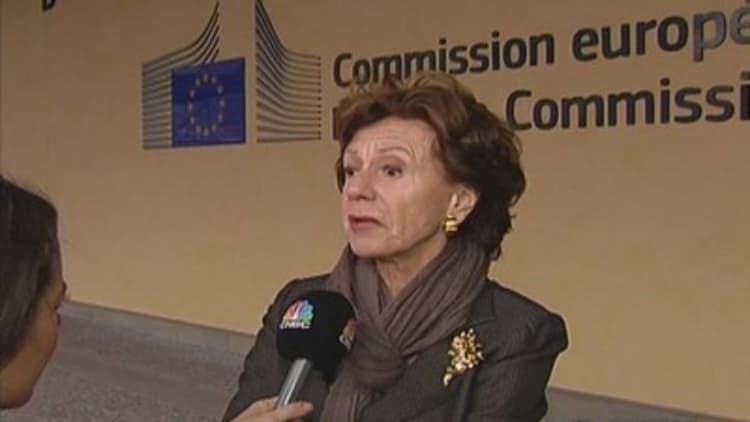Until the middle of 2013, Turkey was an emerging market favorite for global investors, triumphing over many of its peers with strong growth and political stability. In what represents a dramatic turn of fortune, a swift recovery to the economic successes of yesteryear appears unlikely, experts have told CNBC.
"The Federal Reserve started tapering, then the fight between the government and the Gulen movement ... Turkey needs to and will slow down," Ozgur Altug, chief economist at BGC Partners, explained to CNBC.
While officials have stuck with a 4 percent target for 2014, most economists have revised their forecasts to just above 2 percent.
(Read more: Turkish lira: More weakness to come?)
The Turkish lira has lost close to a quarter of its value over the past year, while the Istanbul Stock Exchange is down by one-fifth over the same period as the country grapples with a shifting landscape. The political spat and corruption scandal that has rocked the nation to its core has taken on bizarre overtures.
It's still early days. The debacle comes at a crucial point with municipal elections taking place this Sunday and a presidential vote slated for August. Both will seriously test financial markets and the incumbent government.
In the latest episode, rare cracks appeared at the top level of the administration when President Abdullah Gul criticized the decision of Prime Minister Recep Tayyip Erdogan
With emerging markets already under pressure, the central bank was forced to dramatically hike rates in an emergency session in late January to halt the lira's slide against major currencies. It has recovered somewhat since and government borrowing costs have thus far remained largely under control, notwithstanding a yawning current account deficit of an estimated 7.1 percent of gross domestic product.
(Read more: )
Property still in demand, by locals!
In the broader context of falling valuations and dented investor confidence, one asset class has turned out to be slightly more resilient and that is the property market.

According to real estate consultancy REIDIN, the Turkey composite residential property price index showed sales prices rose 15.6 percent, although the city of Istanbul was marginally higher, gaining 20 percent over the year to February 2014. The key growth engine here has been the credit-fueled expansion of domestic demand.
"The urban transition continues heavily, despite the political uncertainty," Gizem Altinsac, chief economist at Garanti Securities, told CNBC. "And the big investors are local. The foreigners have little share," she continued.
A quick look at the latest numbers from the official Turkish Statistical Institute (TurkStat) offers a compelling story. Home sales to foreigners represented just 1 percent of total house sales of 1,157,190 in 2013. The increase year over year in February was 50 percent, but from a low base of 716.
(Read more: 5-star fund manager's top EM picks)
Additional catalysts have not given the numbers much of a boost. In 2012, the Turkish government eased the reciprocity requirement for property ownership by citizens from the oil-rich Gulf. A substantial influx of money from the region, akin to the buying sprees in prime residential areas such as London and Paris, has yet to materialize.
"Everybody wants to have some clarity about what is going on in Turkey right now," Altug admitted. "My biggest worry is political stability."
—By CNBC's Yousef Gamal El-Din. Follow him on Twitter @youseftv.

